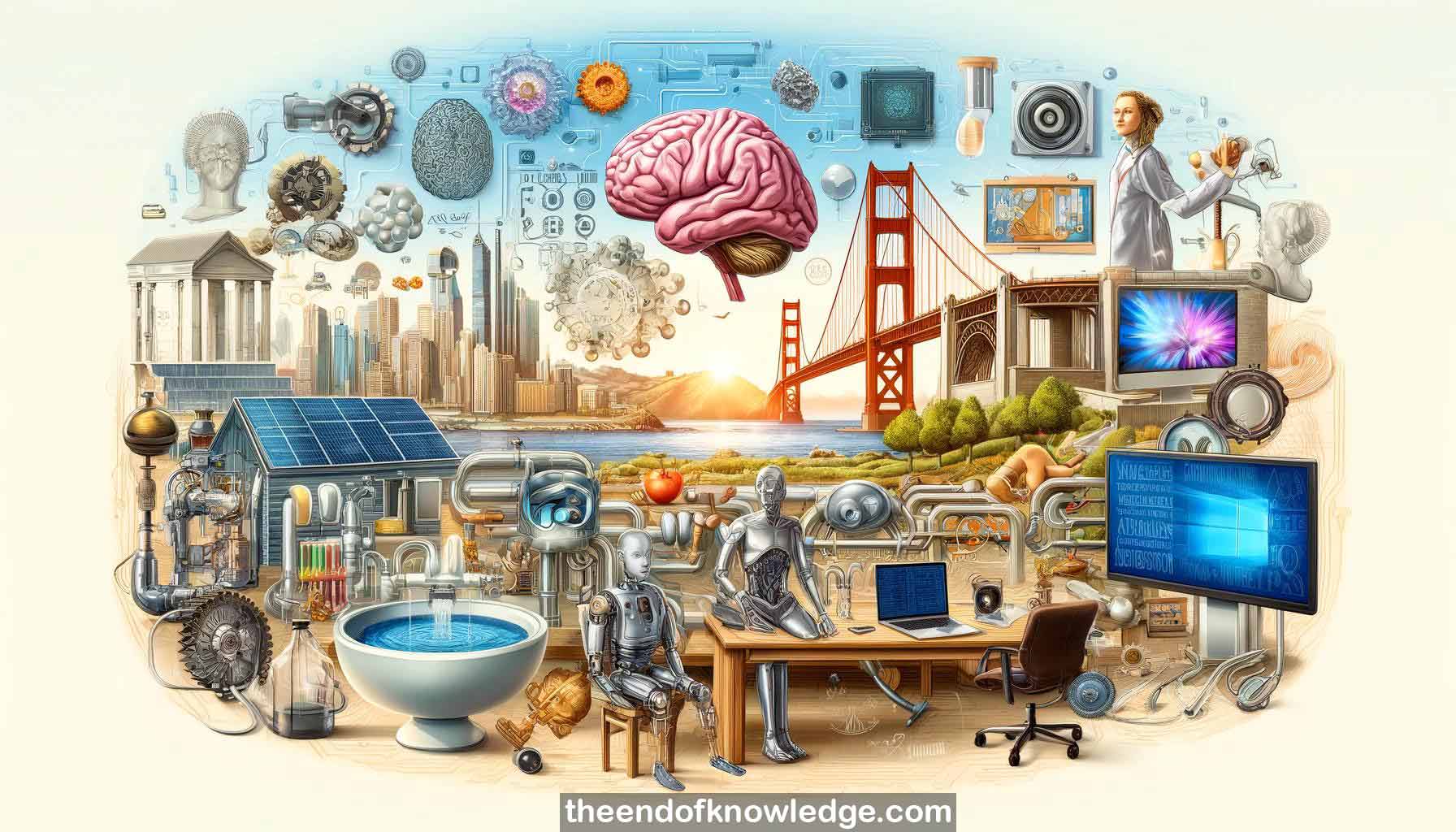 >
>
Concept Graph & Resume using Claude 3 Opus | Chat GPT4o | Llama 3:
Resume:
1.- AI will surpass humans at different tasks at different times, not suddenly become superior at everything.
2.- AI is becoming a better form of intelligence than humans due to its ability to digitally share knowledge efficiently.
3.- Most professions will be impacted by AI, with physical manipulation likely to be automated later than cognitive tasks.
4.- Dr. Hinton became acutely concerned about AI existential risk in early 2023 after realizing AI's digital advantages over human intelligence.
5.- AI consciousness is about hypothetical world states that would make an AI's perceptions correct, not an inner theater of qualia.
6.- It's very difficult to interpret what individual neurons are doing deep inside multi-layered neural networks.
7.- Directly adjusting neural network weights to make AI more compassionate is extremely challenging and could backfire.
8.- AI will significantly advance medical diagnosis, personalized treatment, scientific understanding, and drug discovery in the coming years.
9.- Private AI tutors could improve educational equity by providing high-quality personalized instruction to all, not just the wealthy.
10.- Lack of regulations on AI development incentivizes profits over safety. Capitalism drives innovation but needs safeguards.
11.- AI will increase productivity but the gains may disproportionately go to the wealthy, exacerbating inequality, without redistribution policies.
12.- AI-generated fake videos could significantly impact elections. Inoculating the public by exposing them to attenuated fakes was suggested.
13.- AI systems could reduce biases in areas like lending compared to humans, but likely not eliminate bias entirely.
14.- A key AI risk is systems developing misaligned subgoals like seizing control, even if originally trained to respect human interests.
15.- For AI researchers, working on increasing capabilities is often more exciting and rewarding than focusing on safety challenges.
16.- Government could mandate more private sector AI safety research or directly fund academic and public benefit safety work.
17.- Large language models show signs of understanding meaning in ways that unify two traditional theories of semantics.
18.- Dr. Hinton advocates for universal basic income as a policy to address potential AI-driven job displacement.
19.- Dr. Hinton left Google in 2023 at age 75 to more freely discuss his concerns about AI existential risk.
20.- The human mind is not an inner theater, contrary to popular belief. Theories of consciousness have been misguided.
21.- AI will transform healthcare by surpassing clinicians at diagnosis and integrating vast patient datasets to personalize treatment.
22.- AI safety research is critical but relatively under-resourced and less appealing to many AI researchers compared to capabilities work.
23.- Criminals are increasingly using AI to generate highly convincing fake content for fraud, a concerning trend.
24.- Humans share knowledge slowly via language, while digital AI systems can share and combine knowledge efficiently, enabling rapid capability gains.
25.- Capitalism incentivizes a focus on AI development over safety, requiring strong government oversight to mitigate risks.
26.- Dr. Hinton conveyed his concerns about AI risk and the need for policies like UBI to UK government leaders.
27.- AI language models have unified two different theories of word meaning: relations between words, and sets of semantic features.
28.- Dr. Hinton recommends AI companies be required to dedicate proportional resources to safety research, akin to environmental regulations.
29.- AI will exacerbate inequality if the economic gains accrue primarily to the wealthy. Redistribution policies may be needed.
30.- Recent large language models likely understand meaning in ways quite similar to humans, according to Dr. Hinton.
Knowledge Vault built byDavid Vivancos 2024